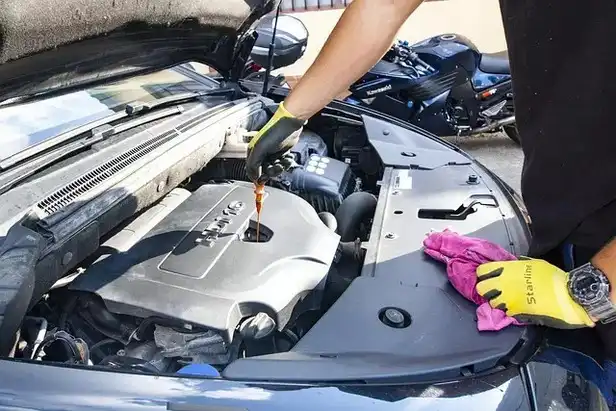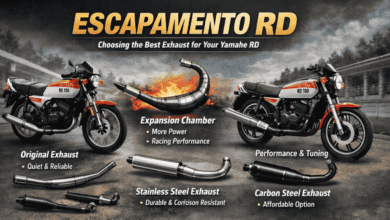The Essential Guide to Maintaining Your Vehicle for Long-Term Reliability

Modern vehicles are marvels of engineering. Packed with technology and built to perform, they offer convenience, efficiency, and safety. However, like any complex machine, cars require regular care and attention. For many, maintenance is an afterthought until something goes wrong—an unusual noise, a dashboard warning light, or a sudden breakdown on the road. But it doesn’t have to be this way.
Understanding how to properly maintain your vehicle can drastically improve its performance, extend its lifespan, and save you from expensive repairs down the line. In this article, you’ll learn about the most important areas of vehicle upkeep, how to spot early warning signs of trouble, and why consistent care matters more than you might think.
The Importance of Routine Vehicle Maintenance
Every time you start your car, dozens of interconnected systems come to life—from the ignition and fuel injection systems to the battery, tires, brakes, and suspension. Each part plays a role in ensuring a safe and smooth drive. Over time, these components degrade. Neglecting even one area can lead to performance issues or safety hazards.
That’s why routine inspections and timely repairs are essential. Regular maintenance helps preserve fuel efficiency, ensures optimal engine function, and maintains safety on the road. Moreover, keeping your car in excellent shape supports its resale value and can help avoid the stress of unexpected breakdowns.
Key Areas of Your Vehicle That Need Attention
To maintain your vehicle effectively, you should understand the main systems that need routine checks and servicing.
1. Engine Health
Your car’s engine is like its heart. It powers your vehicle and enables it to perform all necessary functions. Clean engine oil is crucial for lubricating internal parts and reducing friction. When oil becomes dirty or breaks down, it can cause overheating and wear.
When to act: Most manufacturers recommend changing the oil every 5,000 to 7,500 miles, but always check your owner’s manual for specifics.
Other important components include the air filter, which ensures clean air reaches the engine, and the timing belt, which synchronizes internal engine operations. Replacing these at recommended intervals can prevent engine damage.
2. Tires and Suspension
Tires are often overlooked until they cause trouble. Yet, they’re your only point of contact with the road, and their condition greatly affects safety and handling.
Regularly check tire pressure, tread depth, and signs of uneven wear. Under-inflated tires can reduce fuel efficiency and increase stopping distances, while worn tires can compromise traction.
Your car’s suspension system—shocks, struts, and springs—affects ride comfort and steering control. If your vehicle pulls to one side or bounces excessively, your suspension may need inspection.
3. Brake System
Reliable brakes are non-negotiable. Your safety, and that of others on the road, depends on how quickly and smoothly you can stop your vehicle.
Brake pads and rotors wear down over time. Squealing or grinding noises are common signs they need replacement. Brake fluid also needs periodic flushing to maintain braking performance.
Ignoring brake issues can lead to total brake failure, putting lives at risk. Don’t wait for signs—schedule inspections as part of your routine maintenance.
4. Battery and Electrical System
A dead battery is one of the most common reasons drivers get stranded. Most car batteries last about 3 to 5 years. Extreme temperatures, frequent short trips, and corrosion can all reduce battery life.
Regularly check the battery terminals for corrosion and ensure it holds a proper charge. Also, make sure the alternator and starter motor are in good condition, as these work in tandem with your battery to power your car.
Dashboard electronics, lighting systems, and infotainment all depend on a healthy electrical system. Faulty wiring or a weak battery can lead to malfunctioning components or even electrical fires.
Signs Your Car Needs Immediate Attention
Even with proper care, components will eventually wear out. Recognizing early warning signs can prevent bigger problems:
- Unusual smells or smoke
- Dashboard warning lights
- Knocking or ticking noises from the engine
- Difficulty starting
- Vibrations during acceleration or braking
- Sudden changes in fuel efficiency
These symptoms often point to underlying issues. Don’t wait—schedule a car service as soon as possible when these arise.
Benefits of a Professional Car Service
While some maintenance tasks can be done at home, many require the expertise of a trained mechanic. Booking a professional car service ensures that all systems are inspected thoroughly using the proper tools and diagnostic equipment.
Here’s what a full service typically includes:
- Engine oil and filter change
- Air and cabin filter replacement
- Brake inspection and adjustment
- Tire rotation and wheel alignment
- Battery and charging system check
- Fluid top-ups (coolant, transmission, brake fluid)
- Exhaust and emissions inspection
- Steering and suspension check
A quality car service helps catch issues early, improves performance, and provides peace of mind. Many modern garages even offer digital service records and reminders for upcoming appointments.
DIY Maintenance Tips to Extend Vehicle Life
Although professional help is valuable, car owners can also take several simple steps at home to keep their vehicles running smoothly:
1. Check and Top Off Fluids
Learn how to check engine oil, coolant, brake fluid, windshield washer fluid, and power steering fluid. Keeping these levels in check helps prevent overheating, poor braking, and visibility issues.
2. Inspect Your Tires Monthly
Look for signs of wear, bulges, or objects embedded in the tread. Rotate your tires every 6,000 to 8,000 miles to ensure even wear. Proper tire care can add thousands of miles to their lifespan.
3. Replace Worn Wiper Blades
Wiper blades degrade over time and can leave streaks or miss patches on your windshield. Replacing them once or twice a year helps ensure clear visibility in adverse conditions.
4. Keep Your Car Clean
Dirt, grime, and road salt can cause paint damage and rust. Regular washing, waxing, and interior vacuuming protect both the exterior and cabin materials from wear and corrosion.
The Role of Technology in Modern Maintenance
Today’s vehicles are smarter than ever. Sensors and onboard diagnostic systems (OBD-II) provide real-time feedback about tire pressure, engine health, and other critical systems. Many modern cars alert drivers about upcoming services or potential issues long before a breakdown occurs.
Some advanced vehicles even allow remote diagnostics via mobile apps, giving owners instant updates on their car’s condition. While this technology is useful, it doesn’t replace hands-on inspection. Combining tech tools with traditional maintenance provides the most comprehensive approach to car care.
Keeping Maintenance Records
Maintaining a service log helps track when specific parts were last checked or replaced. This is useful for scheduling future maintenance and essential when selling your vehicle. Buyers often feel more confident purchasing a car with a well-documented maintenance history.
You can use a physical logbook, smartphone app, or cloud-based software to store receipts, notes, and reminders. Staying organized ensures you never miss an oil change or tire rotation.
Long-Term Benefits of Regular Maintenance
Regular maintenance might feel like a chore, but the long-term rewards are undeniable:
- Improved fuel economy: Clean filters, properly inflated tires, and fresh oil improve efficiency.
- Fewer breakdowns: Routine checks catch issues early.
- Higher resale value: Buyers prefer well-maintained vehicles.
- Extended vehicle life: Preventing wear and tear leads to longer use.
- Enhanced safety: Good brakes, tires, and lights reduce accident risk.
Think of vehicle care as an investment. The time and money you spend today could save you thousands in the future.
Final Thoughts
Your vehicle is a major asset—and one that deserves care and attention. With consistent maintenance, prompt repairs, and periodic professional evaluations, you can keep it running efficiently, safely, and reliably for years to come.
Don’t wait for a breakdown to take action. Whether you’re scheduling your next oil change, checking your battery health, or planning a full car service in Castle Rock being proactive is always the best policy.
The more effort you put into caring for your car, the more dependable and enjoyable it will be in return.




